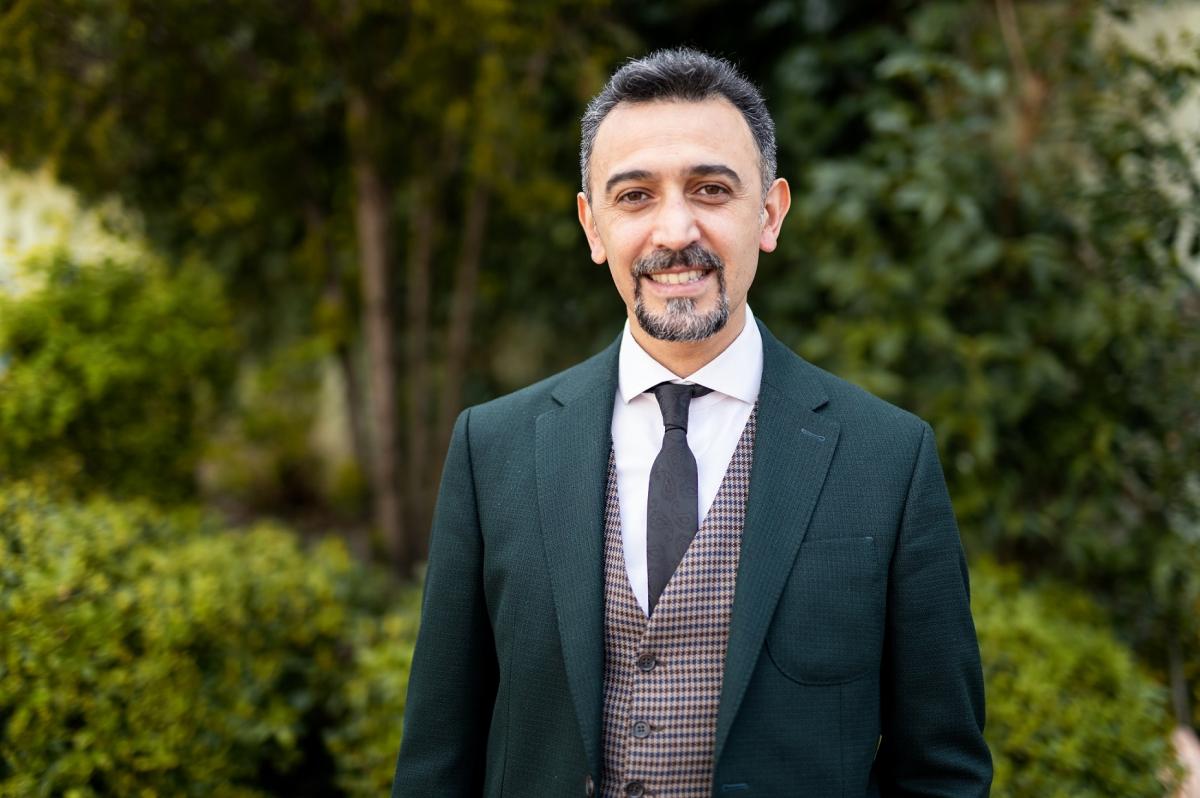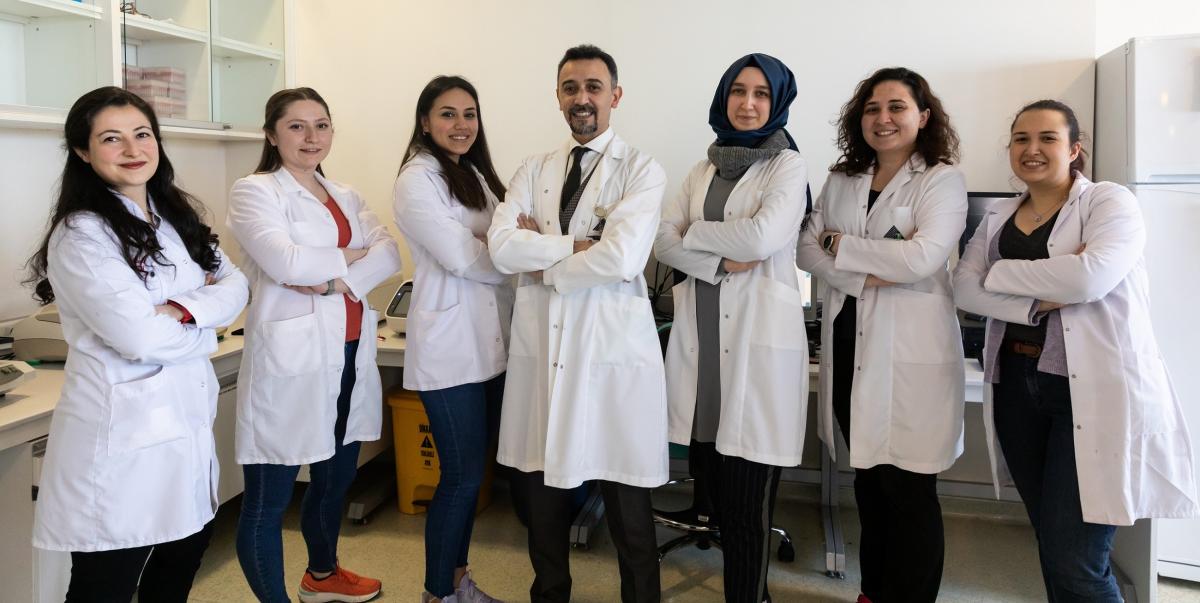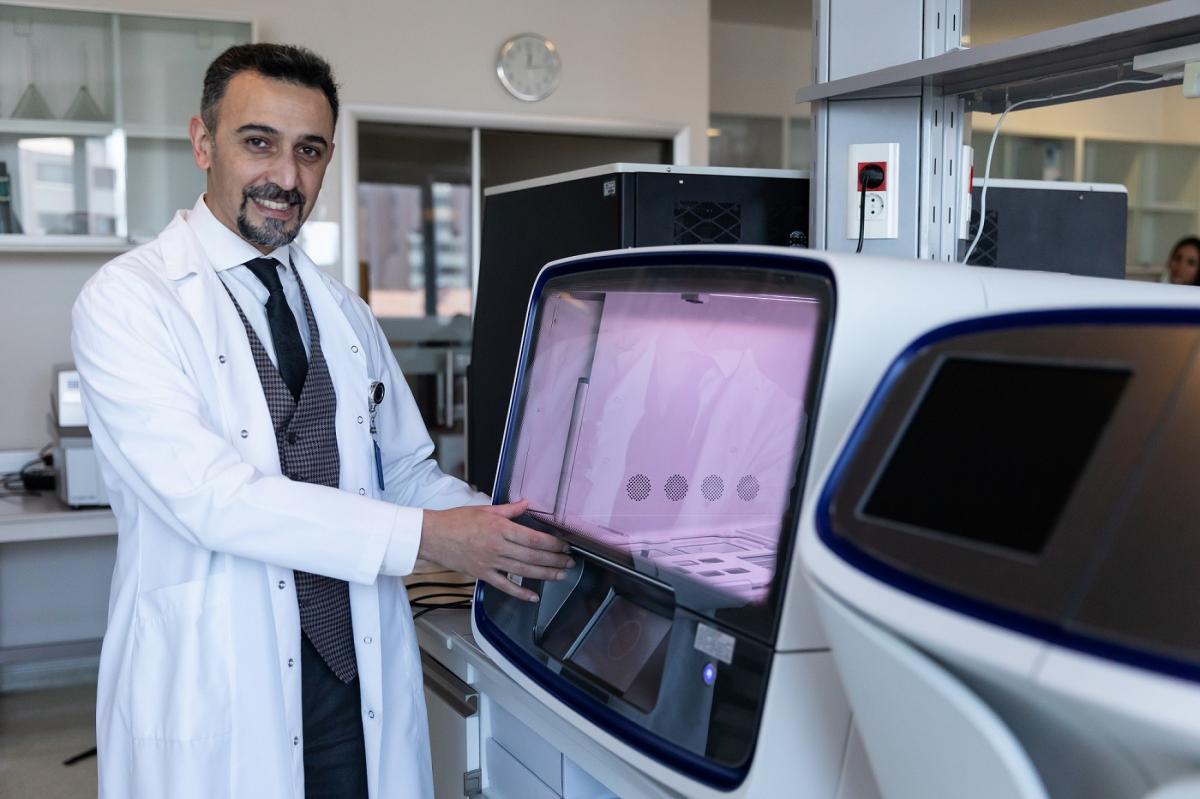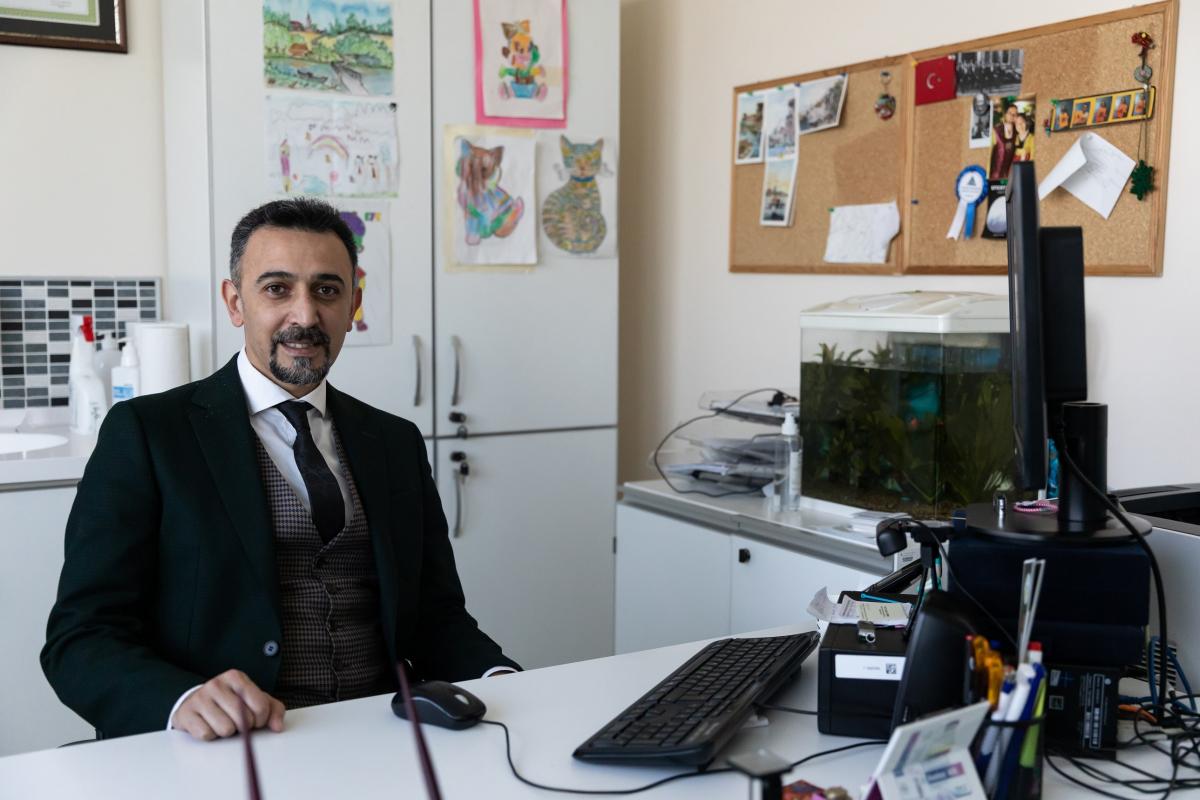Follow Scientists Like Fashion Icons
Finally, he received support for his project focusing on cellular therapy for chordoma patients. Prof. Dr. Bayrak advises young people who are on their way to becoming researchers to “In order to learn from their work, they should follow scientists as if they were following fashion icons.
Yeditepe University's Head of the Department of Medical Genetics, Faculty of Medicine, Prof. Dr. Omar Faruk Bayrak has a career story that will earn the surprise and envy a lot of people. Bayrak, who has worked 20 project supported by TÜBİTAK up until now, is still busy with his last project, which received a "Prioritized Areas of R&D - 1003", in which he conducts research regarding cell terapy for patients of chordoma.
“Don't give up, don't back down keep trying new things!" is the motto of Prof. Dr. Ömer Faruk Bayrak. Let's hear from him in his own words!

First of all, we would like to get to know you. Can you tell us about your educational life?
I was born in Erzurum in 1979. I completed my primary and secondary education here. I have completed my bachelor's degree in Biology at Erzurum Ataturk University and my master's degree in Medical Genetics at the Ataturk University's Faculty of Medicine. I continued to work at Yeditepe University while doing my doctorate, but I received my doctorate at Selcuk University. In December 2010, I started working as a research assistant in the Department of Cardiology at the Heart Foundation, located at the University of Minnesota and I have conducted embryonic stem-cell research there. I returned to Turkey at the beginning of 2012 and started working at Yeditepe University again. Here, I received my associate professorship and professorship.
What are the turning points of your career?
The most important turning point of my educational life is studying at an Anatolian High School. Another is that in my senior year of college, my life became entangled with mundane worries, dreams of marriage with my wife, and a rush to take on new responsibilities. The third breaking point was my entrance to Yeditepe University. Meeting with Bedrettin Dalan and Dr. Fikrettin Şahin and working with them opened up an incredible horizon for me. In addition, in 2009, the contributions on my continuation in Medical Genetics by Prof. Dr. Altay Burak Dalan is quite important for me.
“Studying in the Right Schools with the Right People Broadens Your Horizons”
You emphasized that you have studied in an Anatolian High School. Can we say that secondary education is important?
Definitely, studying in the right schools with the right people is one of the most important points in your educational life. It broadens your horizons and increases your ability to compete. I studied at the most beautiful school in Erzurum. Seven Maarif Colleges have opened during the Republican Period in Turkey. One of them is the school I graduated from, which later became Erzurum Anatolian School. Ataturk University is also a well-established university founded in 1953. I think it is very important for me to have studied in these elite schools.

"Successes Have Stories, Failures Have Excuses"
Have you encountered any difficulties in your career process? How did you overcome all this?
As a matter of fact, difficulties are the steps of this thing. The difficulties you experience multiply as you go higher and move forward. I think difficulties should not scare people. Successes have stories, failures have excuses.
“There is a friendly, a large familial atmosphere in Yeditepe University.”
Our university celebrates its 25th year as of this year. You were present at most of it, you were a witness to it, what would you like to say?
There is a friendly, a large familial atmosphere in Yeditepe University. It is a strong university with its R&D-focused studies, academic structures and its laboratory substructure. It has a laboratory substructure that is incomparably better than any other university. This is very important for scientists doing laboratory studies like us. If I were a student who wanted to move forward on the research path, I would definitely prefer Yeditepe University after seeing this laboratory environment.
Do you have a life motto that motivates you for success?
Don't give up, don't back down and keep trying new things!
What are your hobbies, for example, things that you think contribute to you in the career process, which are outside of your field?
First of all, I care about being positive, this adds a separate power to what you do. I do not think that a person will achieve "one-way" development, a scientist cannot succeed just by closing himself in a laboratory, you know. He must also develop himself in other areas. If he is able to cook well, or even cook well with his own recipes, this means that he can also succeed in the laboratory. I am fond of pets. I also do academic research when it comes to gathering information about these things.
Is travel also one of these hobbies?
I really like to travel, especially if I'm driving the car. I really like to travel with people I like. I used to do mountaineering, but now I can't do it because of the kids, the workload, and the fact that I'm not as young as I used to be anymore. I really like the Norwegian fjords, the Lake District in Minnesota, Lake Salda, Lake Eğirdir, Borçka's Karagöl and the Kaçkar Mountains. Erzincan Kemah is a very beautiful region.
Were there any people who inspired you?
Of course, there are people I'm inspired by, too. First and foremost is Mustafa Kemal Atatürk. Bedrettin Dalan inspires me too. I'm also setting Tesla as an example.

"There Is a Spiritual Side to My Work in the Field of Cancer”
Your field of study is medical genetics and cancer... What was the reason you chose this field?
I am working in the field of genetics, especially on cancer. I have lost many relatives from cancer, including my mother, aunt, uncles. In this sense, there is also a spiritual side to working in the field of cancer for me.
Besides all this, cancer is a phenomenon. Maybe there are thousands of types of cancer. The area where the largest budget is allocated among the scientific researches conducted on Earth is most likely, cancer.
Why can't we prevent cancer?
If we see the fact that the cell count in our bodies is 15 trillion, then we can see the fact that these 15 trillion cells are in constant renewal through our lives. Some cells are not renewed at all, others are renewed many times throughout life. However, even if we think that every cell is renewed 100 times during life, this means that 15 trillion cells are divided and renewed 1.5 quadrillion times. Unfortunately, the human mind cannot comprehend the perfection of this division. Because this means that DNA consisting of 3 billion base pairs is to be copied a 1.5 quadrillion times. The fact that this copying starts and ends smoothly is really very small when you consider the probability of a 1.5 quadrillion. And when you see this, you'd think it's not possible not to have cancer.
When you look at these possibilities, we are in a very difficult situation. The pleasing thing is that cancer doesn't get everyone... Why is that?
Despite this 1 in 1.5 trillion probability in all people, we don't yet know why they don't get cancer and why some get it. With the lengthening of human life, the likelihood of developing cancer is also increasing.
“Cancer Is Still a Great Unknown to Us”
Scientists predicted many years ago that cancer could be treated as a chronic disease in the very near future. Have we reached this stage yet?
There are many varieties of cancer. For some types of cancer, we can say this, but for some types of cancer, this statement is not true. Cancer is still a great unknown to us. But we are also getting happy results regarding what we have solved so far. When we look at it, we can see that even a deadly type of cancer 10 years ago is less deadly today.
You are receiving support from TÜBITAK for your cancer research. Can you tell us about these support?
I have received support from all project codes which were supported by TUBITAK. So far, I have been in 20 supported TUBITAK projects. I have received support from the latest “Priority Areas R&D Project - 1003”. The TÜBITAK projects supported within the scope of 1003 are also the largest budget projects that exist.
We don't want to keep the cancer cell alive. We can think of it as an anarchy in society. Naturally, one'd want that instead of suppressing anarchy, let's prevent the formation of it beforehand. But since the formation of cancer is caused by many chaotic mechanisms, we have not yet been able to achieve this. I am currently working in particularly on a type of cancer called “cordoma”. Chordoma is a type of tumor that settles on the base of the head and the axial skeleton. It is often destructive, as it grows, creating destruction in the surrounding structures and bone. It is resistant to radiotherapy and chemotherapy. An interesting feature that distinguishes this type of cancer from other types is that its cells do not divide quickly. For this reason, compared to other types of cancer, the patient's life expectancy is longer. I decided to work on it not only because it is a very interesting type of cancer, but also it is a type of cancer that is very little known and very few people have worked on.

"I am Working on Cellular Therapy for Chordoma Patients"
Can you tell us about your cellular therapy project that you are currently working on?
Cell therapies are now becoming the first-line treatment service for cancer patients. Until now, after the diagnosis, chemotherapy was usually performed before or after the surgical operation, and radiation therapy was also performed if that was deemed necessary. But in the new developing technology, defense cells / white blood cells can be taken from the patient and after their replication they can be returned to the patient. We can call it ”Cellular Immunotherapy". We genetically modify these cells and turn them into natural killer (NK) cells that can recognize cancer cells by utilizing agents used in bioengineering. We also multiply these NK cells so that they can attack the tumor. In my latest project, I am working on cellular therapy for chordoma patients. We create a protein structure that will recognize chordoma cancer cells in NK cells. Therefore, NK cells would be able to recognize and kill the tumor thanks to these proteins that we upload.
How successful is cellular therapy in other types of cancer?
Currently, cellular therapies can be used in the clinical stages for leukemia patients. There are also many phase studies where cellular treatments are applied but they are all rather high-cost studies. From the point of view of the process, it takes 14 days only to take T and NK cells from the patient and to multiply and return them. But if you are going to make a genetic modification to these cells, then the process can take up to 3 months.
“He Who Has Knowledge Has Power”
2020 has become almost a year of tests for humanity. Considering the possibility that we will face many tests such as this in the coming years, how do you think humanity should prepare for these tests that it is likely to face?
He who has knowledge has power. If you have well-trained human resources, you will succeed in agriculture, economics, and health. If you have the knowledge, you will produce the vaccine against the virus and you will develop the antibiotic against the bacterium. It is obvious that the societies that have the knowledge have founded the most powerful and long-standing civilizations in history.
This has been the case in the past, it is be the case today and it will be the case tomorrow.
What are your predictions about the future of your field of study?
We will be able to treat cancer better, we have managed to treat most single-gene diseases, and we are bound to also achieve more successful results in the future. Now we will recognize people from their DNA instead of fingerprints. DNA sequences of each newborn are to be taken. In this sense, newborn screening is bound to become mroe common. SMA disease, which is a current issue, will be prevented. By taking DNA sequences, you will be able to choose the gender of your future child or its hair and/or eye colour. Science is a double-edged blade. You can it both ethically and unethically.
What are your suggestions for young people who want to become researchers?
First of all, young people need to decide what they want to do, for this they need to act by trial and error. They need to like their profession and learn the sub-options of the profession they are going focus on. They should read those first, and then go to places where they will comprehend its know-how. They should follow the developments in this field as if they were following fashion, and the pioneering scientists in this field as if they were following fashion icons themselves and have some information about their studies.